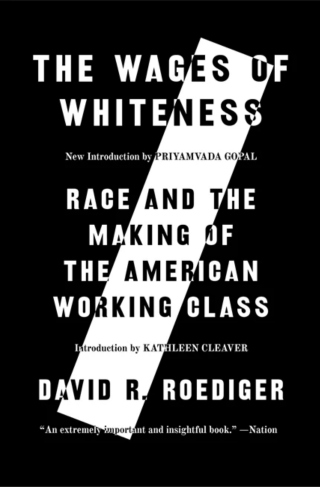Who profits from racism? What turns someone into a racist? Or are they born that way? I burned through Roediger’s memoir because, like many people my age, the way I think about race in labor politics was shaped in a foundational way by his work. Both Wages of Whiteness and An Ordinary White take their titles, in part, from one of Roediger’s chief influences, W. E. B. Du Bois. “Black Reconstruction […] seemed an almost impossible length to be read or even to be made into a paperback whose binding would not break,” he writes, but admits that he now often assigns the book as the Foundation Professor of American Studies at the University of Kansas. The physical size of Du Bois’s work might lead some students to believe they’re in for a dry, academic study, but Black Reconstruction is a readable, rewarding examination of how the Civil War emancipated the slaves and yet did not set anyone free—it’s a study that strikes down eugenicist myths, grounded in a materialist analysis, explaining how profits incentivize racial bigotry from the slave owner to the poor white worker to the industrialist to the Free Soiler.
Du Bois argued that white racial animus is grounded in a psychological phenomenon. Those born white in the United States inherit a “public and psychological wage” that Black Americans do not. This wage is both a surplus in literal monetary payment and—perhaps more importantly—a feeling of default validity. Roediger illustrates this through his mother’s working-class life in Cairo, and the surrounding white community: “[I]n addition to higher wages, better jobs, and greater wealth than African Americans, whites all knew that the best parks, pools, and schools were theirs, and could at least hope that police power would not systematically make them victims.”
Justification for this wage is ubiquitous and embedded in American culture because, historically, it has benefited the capitalist class to have its workers split up in a tiered system, with a range of dignity according to pigmentation:
While the sundown town form of discrimination is sometimes seen as victimizing African Americans by affronting dignity, limiting housing choices, impeding travel, and creating terror—all true—it also functioned in much of central and southern Illinois to literally distance Black workers from good, sometimes union, working-class jobs.
Pitted against each other through language, scarcity, bureaucracy, culture, and so on, capital exerts tremendous leverage over a fractured working class whose unity and solidarity would otherwise threaten to remake life on earth for the better—no joke. The stakes of cooperation across racial lines in the working class have never been higher, and Roediger has spent his life studying the psychological engine in capital that is constantly throwing off new forms of race science.

